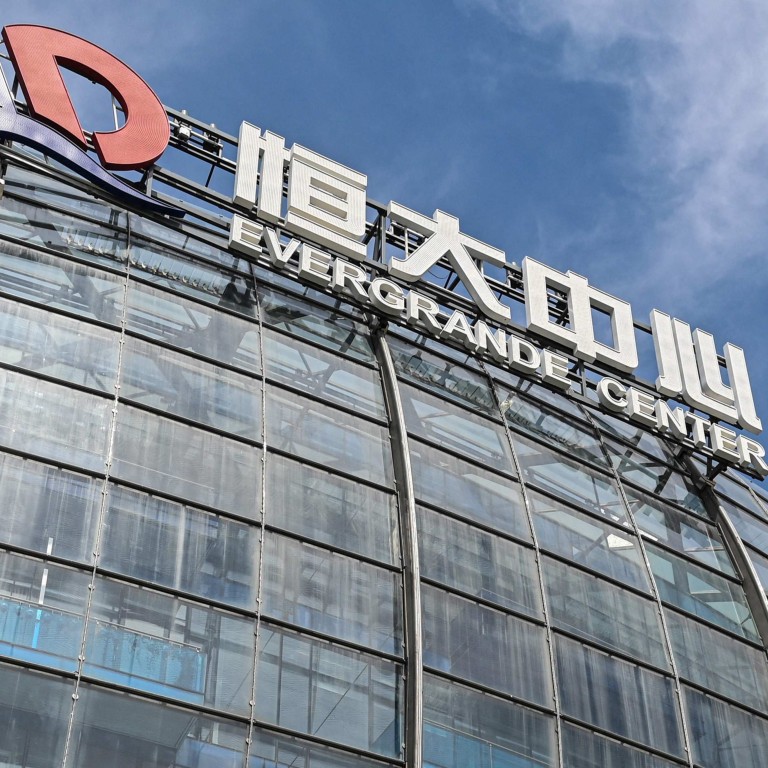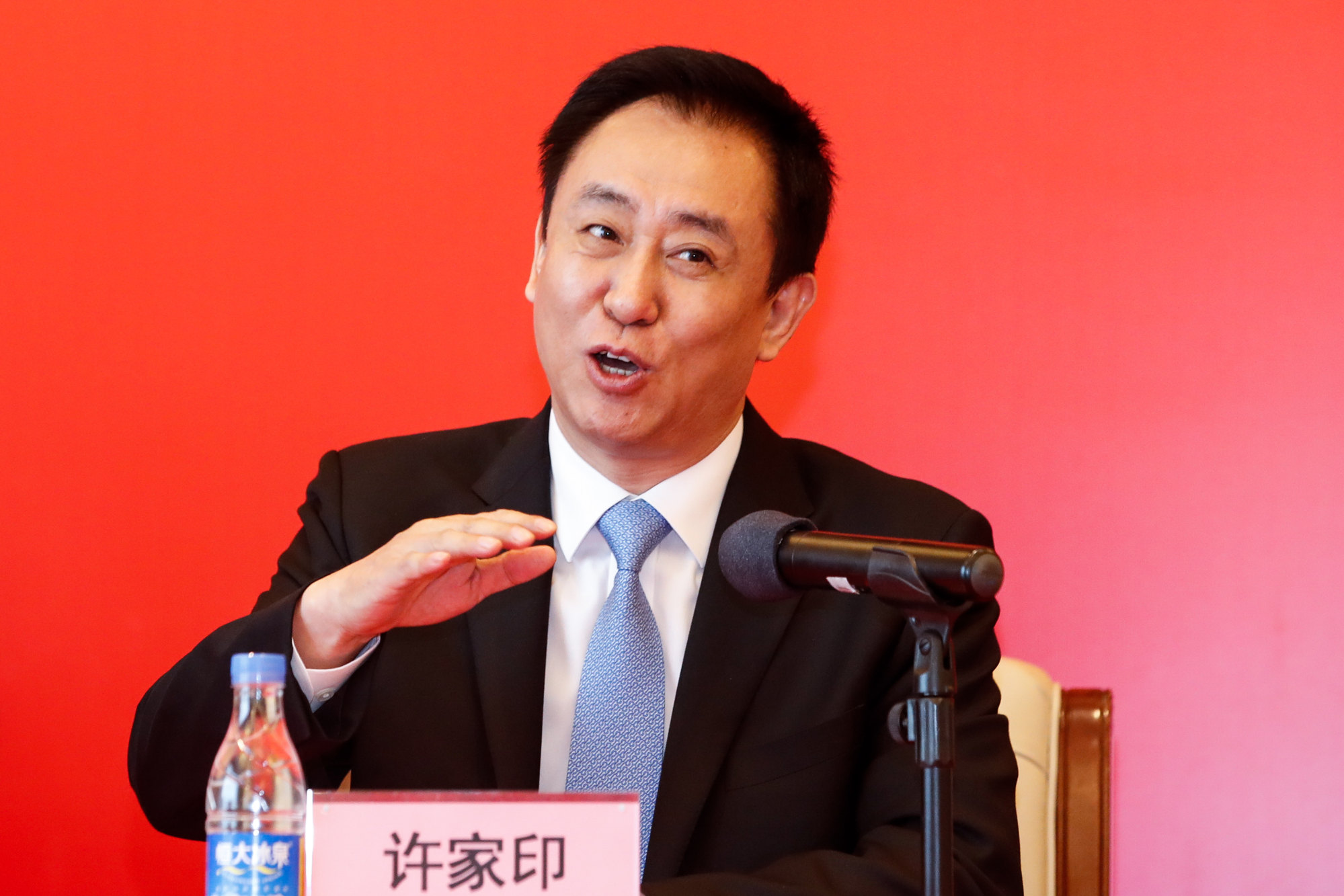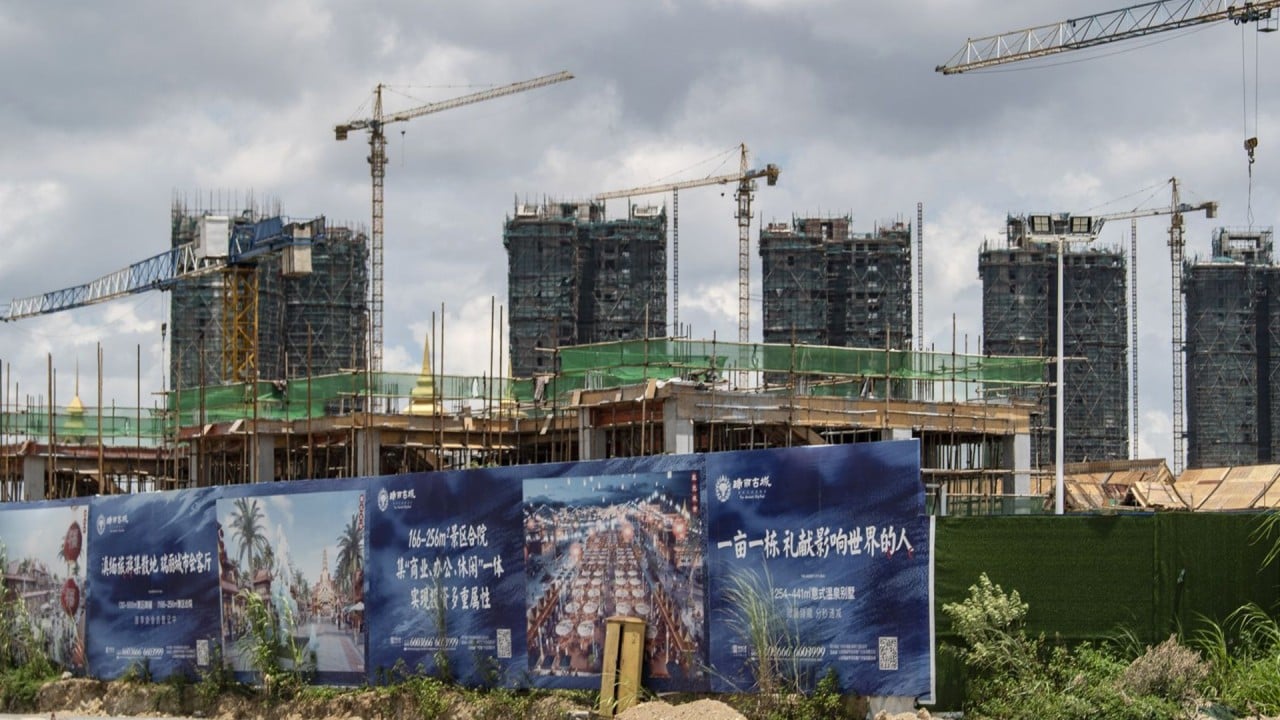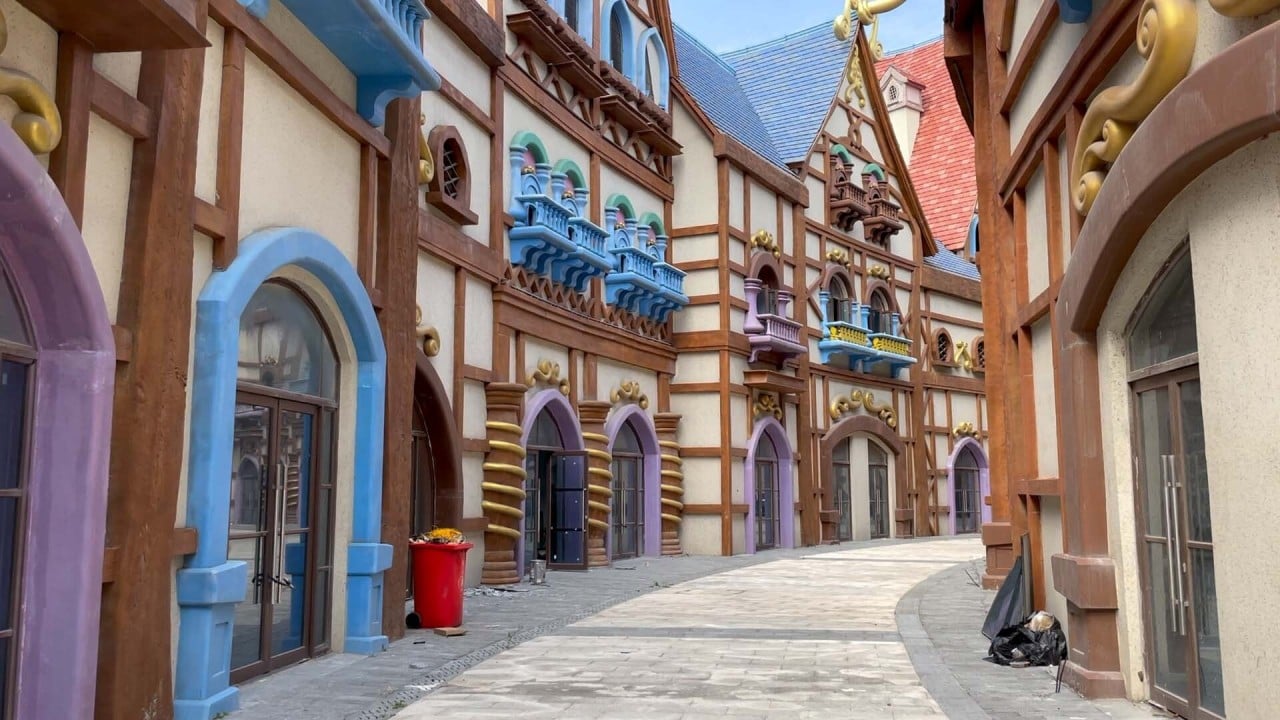
Evergrande’s ‘cash-burning’ EV unit at risk of hiatus in developer’s restructuring to defer US$19.15 billion of offshore debt
- EV unit ‘at risk of discontinuing production’, because of its inability to obtain additional liquidity
- Evergrande’s debt overhaul plan is expected to provide pointers on restructuring efforts to other Chinese developers
The warning comes after its parent firm, China Evergrande Group, unveiled a restructuring plan late on Wednesday night that includes proposals to swap its creditors’ debt with shares of some of its Hong Kong-listed affiliates, such as Evergrande NEV.
“In [the] face of [its] inability to obtain additional liquidity, the group is at risk of discontinuing production,” the EV unit said in a filing to the Hong Kong stock exchange. It had laid off staff and improved its management efficiency to cut costs and support of the mass production of Hengchi 5, its flagship model, Evergrande New Energy Vehicle Group said, adding that it needed about 29 billion yuan (US$4.25 billion) to launch more cars and achieve mass production.
“The carmaker just did not expect how cash-burning the EV business is, and did not expect that it just would not be able to afford it,” said Kenny Ng, a strategist at Everbright Securities International in Hong Kong.
China’s home prices rise for first time in 18 months in sign of rebound
“You cannot say it is totally wrong, as [the EV business] was seen as a way of hedging policy risk in [the property industry] when the government started to tighten up the sector. But EVs are just too demanding in terms of the initial funding.”
The EV unit’s filing comes a day after Evergrande announced a long-awaited restructuring plan to tackle at least US$19.15 billion of its offshore debt.
Evergrande NEV said it expects to continue burning cash for the next three years just to keep production humming, with cash flow running between negative 5 billion yuan and up to negative 7 billion yuan from 2023 to 2026. The carmaker has delivered a mere 900 cars since its first Hengchi 5 EV’s debut last July.
Evergrande stepped into the EV sector in mid 2018, the same year the Chinese central government as well as local authorities introduced measures to rein in eye-watering home prices. It unveiled the Hengchi brand, which means “last forever and travel the world” in Chinese, the following year, and vowed to become the world’s biggest maker of EVs.
The group unveiled a line-up of six Hengchi models in August 2020, and added three more in February 2021, before its debt crisis was revealed in June the same year and it officially defaulted on its dollar bond in December.
China’s real estate sector on the mend, People’s Bank of China official says
“The proposed restructuring will alleviate the company’s pressure of offshore indebtedness and facilitate its efforts to resume operations and resolve issues onshore,” the company said in a filing to the Hong Kong exchange late on Wednesday night.
One option allows creditors to replace existing debt with new bonds with an extended maturity of 10 to 12 years, or with new notes that have a tenor of five to nine years. Another option is for creditors to swap offshore debt into instruments that will be converted into shares of Hong Kong-listed Evergrande Property Services, Evergrande New Energy Vehicle Group, or China Evergrande itself.
It would be mandatory for the new bonds to be exchanged into equities of the corresponding listed firm at maturity – within 24 months in the case of Evergrande Property Services.
“The company will use its best endeavours to restore a healthy ecosystem of capital and business, repair its capital structure and stabilise its business operations,” Evergrande said in the statement.
Fundraising by Chinese property firms tumbled to 7-year low in 2022: CRIC
Investors are likely to welcome the solutions unveiled, but concerns about the rather long extensions and the survival of Hui’s property empire will remain, analysts said.
“The market should be happy to see that there is finally a plan with details,” said Raymond Cheng, managing director of CGS-CIMB Securities. “The long extension periods do show how serious its debt crisis is, and it falls within the expected range. If a creditor’s mandate allows [them] to hold equities, most would like to choose the swap scheme, as a five-year extension at least offers a higher visibility than 12 years.”
The plan was “a bet by bondholders on Evergrande’s other assets outside the property business, and may be better than letting the company default”, said Andrew Collier, managing director of Orient Capital Research. “However, Evergrande is still facing a large capital hole to fill, to have any chance of completing unfinished projects and generating free cash. Given the harsh climate now towards the property sector, I am not optimistic that much of Evergrande’s property business will survive.”

The firm said on Wednesday that it hopes the offshore debt restructuring plan will incentivise its onshore creditors to reach agreements with the company, and to resume business operations and generate cash flows for debt repayment.
In case the restructuring plan is not approved and Evergrande is forced into liquidation, the recovery rate for unsecured offshore creditors of the company would lie in a range of 2.09 per cent to 9.34 per cent, the Wednesday filing said.
Evergrande said it will publish its 2021 audited annual results and its 2022 interim results “as soon as practicable”, after previously saying it expected to release its financial reports in April and May. Its shares were suspended from trading on the Hong Kong stock exchange a year ago, and it faces the risk of delisting if it fails to do so.




